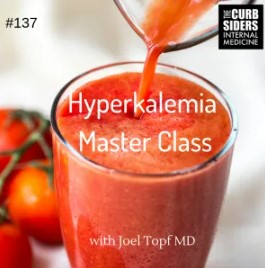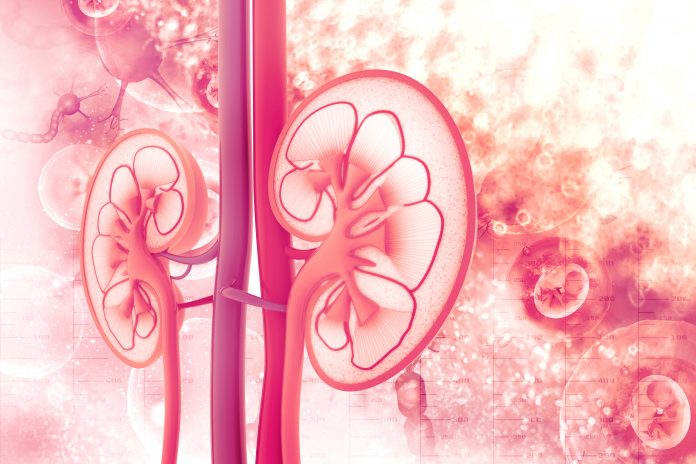What is hyperkalemia?
Hyperkalemia is one of the most common electrolyte abnormalities on the nephrology consult service. It can be seen in a variety of scenarios, including in patients with end-stage kidney disease (ESKD) who have not had sufficient dialysis, patients with acute kidney failure, patients on certain potassium-increasing medications, and patients with high rates of potassium production such as rhabdomyolysis. Sometimes the reason for hyperkalemia will be immediately clear, while in other cases it requires a thorough review of medical history and medication list.
Depending on the severity of hyperkalemia and kidney function, you may choose dialysis or alternate medical management for treatment.
Hyperkalemia
by Leslie V. Simon; Muhammad F. Hashmi; Mitchell W. Farrell
The following is a brief overview of hyperkalemia.
Potassium Homeostasis
by John K. Roberts, MD
If you are interested in a more in-depth review of potassium physiology, watch the following video, "Postassium Homeostasis":
Dispelling myths and misconceptions about the treatment of acute hyperkalemia
by Arnav A Gupta, Michael Self, Matthew Mueller, Gabriel Wardi, Christopher Tainter
This paper reviews the management of acute hyperkalemia, including reviewing many of the medications that can be used.
Hyperkalemia Master Class
with Joel Topf, MD
For a broad discussion of hyperkalemia, from etiology to management, please listen to the following podcast.

Drug-Induced Hyperkalemia
by Chaker Ben Salem, Atef Badreddine, Neila Fathallah, Raoudha Slim, Houssem Hmouda
There are many medications that are linked to hyperkalemia, and it will be important to take careful note of the medication lists in these patients. This paper provides a review of many of the most common such medications. It is more in-depth than you need to know at this stage, but it may serve as a reference when doing a chart review. [Figure 1 provides a nice illustration of the various mechanisms of drug-induced hyperkalemia].




